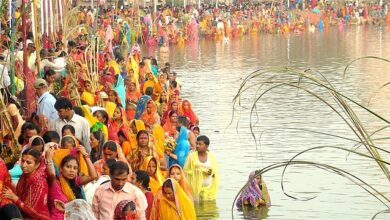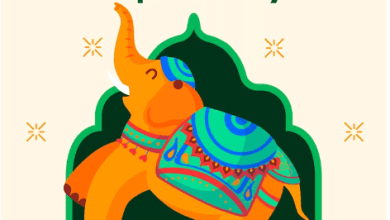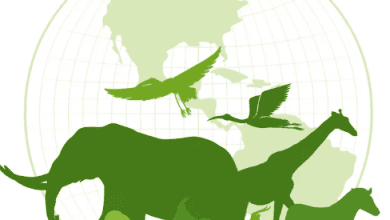Wangala Festival: Celebrating Indigenous Culture in India
Experience the vibrant and colorful Wangala Festival, a celebration of Garo culture and tradition in Meghalaya, India. Join in the festivities and witness traditional performances, music, and dance during this annual harvest festival. Immerse yourself in the rich cultural heritage of the Garo community at the Wangala Festival.
Quick Facts:
Date: November 8-10
Main Components: Traditional harvest festival of the Garo tribe in Meghalaya, India featuring dance, music, and cultural performances.
Popularity: The Wangala Festival is a popular harvest festival celebrated by the Garo tribe in Meghalaya, India.
Pairings: Traditional Garo harvest festival celebrated in Meghalaya, India featuring music, dance, and feasting.
Variations: 1. Celebrating the harvest and the culture of the Garo tribe in Meghalaya, India.
2. A vibrant and colorful festival featuring traditional music, dance, and food.
3. Honoring the Sun God and praying for a bountiful harvest in the coming year.
Introduction to Wangala Festival
The Wangala Festival is a vibrant and colorful celebration of the Garo tribe in Meghalaya, India. It is an annual harvest festival that brings the community together to give thanks for a bountiful harvest and to seek blessings for the upcoming year. The festival is marked by traditional dances, music, and feasting, showcasing the rich cultural heritage of the Garo people. It is a time for people to come together, reconnect with their roots, and celebrate their unity and shared traditions. The Wangala Festival is not only a celebration of the harvest, but also a time for strengthening community bonds and preserving ancient customs.
History and origins of Wangala Festival
Wangala Festival, also known as the Hundred Drums Festival, is a harvest festival celebrated by the Garo tribe in Meghalaya, India. The festival is a way for the community to give thanks to the Sun God for a bountiful harvest and to seek his blessings for the upcoming agricultural season. The festival is marked by traditional music and dance performances, as well as feasting and merriment.
The origins of the Wangala Festival can be traced back to ancient times, when the Garo people relied on agriculture for their livelihood. The festival is a symbol of their close connection to the land and their deep respect for nature. Over the years, the festival has become a significant cultural event, attracting tourists and showcasing the rich traditions of the Garo tribe.
Significance and cultural importance of Wangala Festival
The Wangala Festival is a significant and culturally important event for the Garo tribe in Meghalaya, India. It is a harvest festival that celebrates the end of the agricultural season and gives thanks to the Sun God for a bountiful harvest. The festival is marked by traditional dances, music, and rituals that showcase the rich cultural heritage of the Garo people.
The Wangala Festival is more than just a celebration of the harvest; it also serves as a platform for the community to come together and strengthen their social bonds. It is a time for the Garo people to reconnect with their roots, pass on traditional knowledge to the younger generations, and preserve their cultural identity for future generations.
Traditional dance and music at Wangala Festival
The Wangala Festival is a celebration of the Garo tribal culture in Meghalaya, India. The festival features traditional dance and music performances, including the rhythmic drumming and vibrant costumes of the Garo people. The festival is a time for the community to come together and honor their cultural heritage through lively and spirited performances that showcase the unique traditions of the Garo tribe.
The traditional dance and music at the Wangala Festival not only entertain the audience but also serve as a way to preserve and pass down the cultural heritage of the Garo tribe. Through these performances, the younger generation is able to learn and appreciate the rich history and traditions of their community, ensuring that the legacy of their ancestors continues to thrive for generations to come.
Food and cuisine associated with Wangala Festival
The Wangala Festival is a celebration of the Garo tribe in Meghalaya, India, and is centered around their agricultural traditions. The food and cuisine associated with the festival reflect the bountiful harvest and include dishes made from locally grown ingredients such as rice, pork, and various vegetables. Traditional Garo dishes like nakam, a fermented pork dish, and chilka, a rice-based snack, are often prepared and shared during the festivities, adding to the cultural significance of the event.
The cuisine at the Wangala Festival not only showcases the rich flavors and culinary traditions of the Garo tribe but also serves as a way to bring the community together to honor their agricultural heritage. The food plays an integral role in the festival, as it symbolizes the prosperity and abundance of the harvest season, and is a way for the Garo people to express their gratitude for the blessings of nature.
Rituals and ceremonies during Wangala Festival
The Wangala Festival, celebrated by the Garo tribe in Meghalaya, India, is a vibrant event that includes various rituals and ceremonies. One of the key rituals is the Wangala dance, where the villagers come together to perform traditional dances to the beats of drums and gongs. Another important ceremony is the offering of sacrificial animals to the Sun-God, Misi Saljong, to seek blessings for a good harvest and prosperity.
During the festival, the Garo people also conduct rituals to honor their ancestors and seek their blessings for the community. This includes performing traditional songs and dances to pay homage to their forefathers and seeking their guidance for the well-being of the tribe. The entire festival is a beautiful display of the Garo culture and their deep reverence for their traditions and beliefs.
Impact of modernization on Wangala Festival
The modernization of the Wangala Festival has brought about both positive and negative impacts. On the positive side, modernization has allowed for increased awareness and promotion of the festival, attracting more visitors and participants. This has also led to the incorporation of modern elements such as music and dance styles, adding a new and dynamic dimension to the traditional celebration.
However, modernization has also brought about concerns of commercialization and dilution of the festival’s traditional significance. There is a risk of losing the authenticity and cultural integrity of the event as it becomes more commercialized and influenced by outside forces. As the festival continues to modernize, it is important to strike a balance between preserving its traditional roots and embracing new elements.
Regional variations and celebrations of Wangala Festival
The Wangala Festival, also known as the Hundred Drums Festival, is celebrated by the Garo tribe in the Garo Hills region of Meghalaya, India. Each village within the region has its own unique way of celebrating the festival, with variations in the traditional dances, songs, and rituals performed. The festival is a time for the community to come together and give thanks for a good harvest, and it is also an opportunity for young men and women to showcase their skills and talents in traditional arts.
In addition to the regional variations in the celebration of the Wangala Festival, different sub-tribes within the Garo community also have their own distinct customs and traditions associated with the festival. For example, the Achik and Chisak sub-tribes have their own unique dances and musical instruments that are integral to their Wangala celebrations. These variations add to the rich cultural diversity of the festival and showcase the unique heritage of the Garo people.
Preservation and promotion of Wangala Festival
The preservation and promotion of the Wangala Festival is crucial in safeguarding the cultural heritage of the Garo people of Meghalaya, India. This traditional harvest festival celebrates the bountiful harvest and is an important event for the community, showcasing their unique music, dance, and costumes.
Efforts to preserve and promote the Wangala Festival include organizing cultural events, workshops, and educational programs to raise awareness and appreciation for the festival. Additionally, initiatives to document and archive the festival’s traditions and practices help ensure that future generations can continue to celebrate and honor their cultural heritage.
Future of Wangala Festival in the modern world
The Wangala Festival, a traditional harvest festival celebrated by the Garo tribe in Meghalaya, India, has been an important part of their cultural heritage for centuries. In the modern world, as globalization and urbanization continue to impact indigenous traditions, there is a growing concern about the future of the Wangala Festival. Efforts to preserve and promote the festival, such as incorporating it into tourism initiatives and organizing cultural exchange programs, are essential to ensure that this rich cultural tradition continues to thrive in the modern world.
Hidden Facts
1. The Wangala Festival is a traditional harvest festival celebrated by the Garo tribe in Meghalaya, India.
2. It is also known as the Hundred Drums Festival, as a hundred drums are played during the festivities.
3. The festival is a symbol of unity and community among the Garo people, and it is a time for them to give thanks for the harvest and pray for a bountiful future.
4. The highlight of the festival is the Wangala dance, where men and women dressed in traditional attire perform energetic and rhythmic dances to the beat of the drums.
5. The festival also features traditional music, food, and crafts, making it a vibrant celebration of Garo culture.
Top 10 Best Wishes For Wangala Festival
1. May the spirit of togetherness and unity shine brightly at the #WangalaFestival.
2. Wishing for a successful and joyful celebration at the #WangalaFestival.
3. May the traditional music and dance bring happiness to all at the #WangalaFestival.
4. Hoping for a bountiful harvest and prosperity for all during the #WangalaFestival.
5. Wishing for the preservation and promotion of Garo culture at the #WangalaFestival.
6. May the #WangalaFestival bring peace and harmony to the community.
7. Hoping for a colorful and vibrant #WangalaFestival celebration.
8. Wishing for the success and growth of the #WangalaFestival in the years to come.
9. May the youth be inspired to carry on the traditions of the #WangalaFestival.
10. Hoping for the recognition and appreciation of the #WangalaFestival on a global scale.
Top 10 Best Messages For Wangala Festival
1. Celebrating the vibrant culture and traditions of the Garo tribe at the #WangalaFestival
2. Join us for a weekend of music, dance, and feasting at the #WangalaFestival in Meghalaya!
3. Embracing the rich heritage of the Garo community at the #WangalaFestival
4. Experience the beauty of Garo folklore and traditions at the #WangalaFestival
5. Get ready to witness the lively Wangala dance at the #WangalaFestival
6. Indulge in delicious Garo cuisine and immerse yourself in the #WangalaFestival celebrations
7. Come and be a part of the colorful and joyous #WangalaFestival in Meghalaya!
8. Let’s celebrate the harvest season with the Garo community at the #WangalaFestival
9. Discover the unique customs and rituals of the Garo tribe at the #WangalaFestival
10. Don’t miss out on the chance to experience the authentic culture of Meghalaya at the #WangalaFestival!
Top 10 Best Quotes For Wangala Festival
1. “Wangala is not just a festival, it’s a celebration of our culture and traditions.”
2. “The rhythm of the drums at Wangala Festival fills the air with joy and excitement.”
3. “Wangala Festival is a time for the Garo people to come together and showcase their unity and strength.”
4. “The colorful dances and vibrant music at Wangala Festival are a sight to behold.”
5. “Wangala Festival is a reminder of the rich cultural heritage of the Garo community.”
6. “At Wangala Festival, the traditional attire and ornaments are a visual feast for the eyes.”
7. “The energy and enthusiasm at Wangala Festival are infectious, spreading joy to all who attend.”
8. “Wangala Festival is a time to give thanks for the blessings of the harvest and the abundance of nature.”
9. “The spirit of togetherness and camaraderie at Wangala Festival is truly uplifting.”
10. “Wangala Festival is a time to honor the traditions of our ancestors and pass them on to future generations.”



